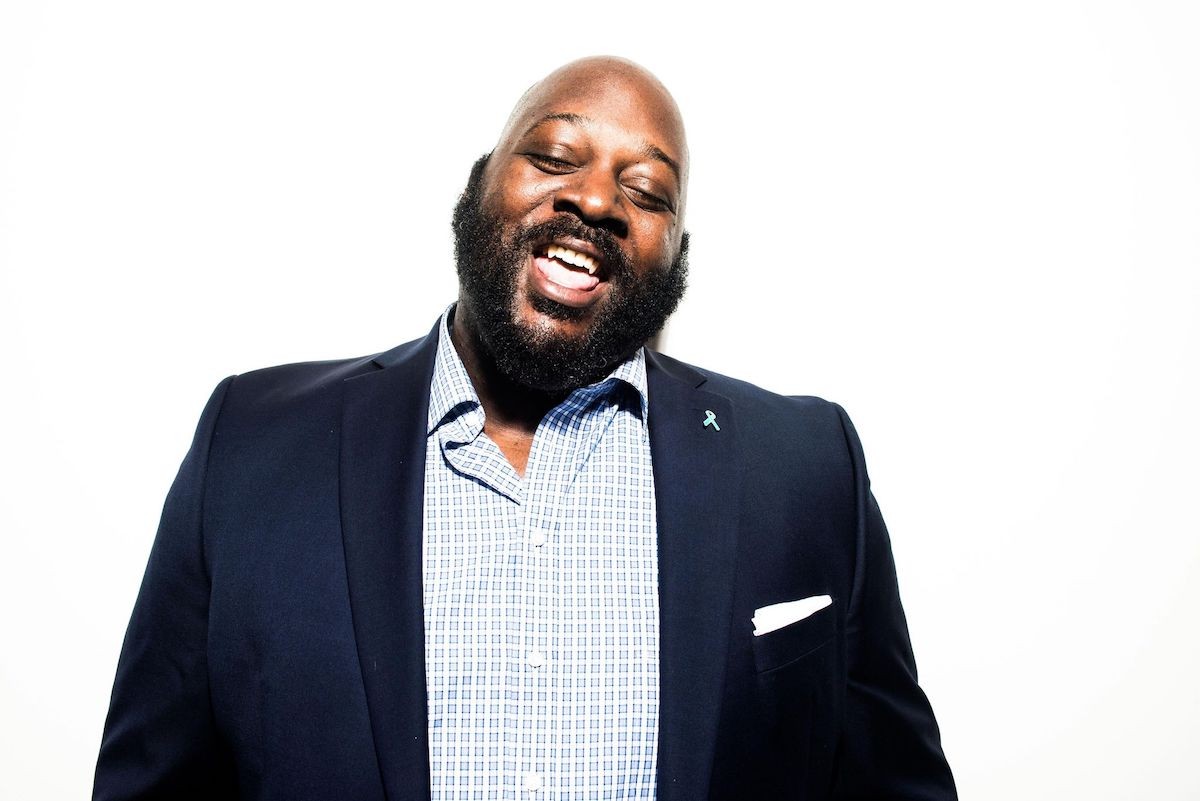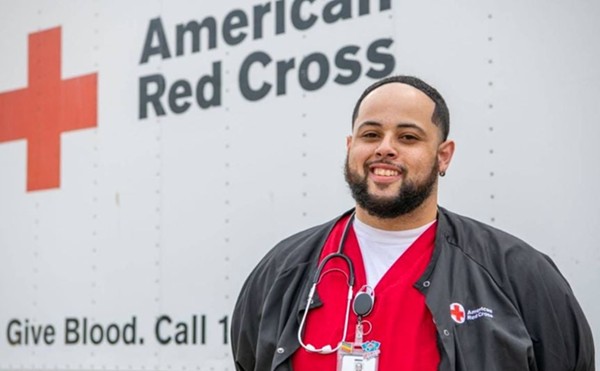Attorneys are often considered pillars of the community. Often thought of as vigorous champions of justice, attorneys are bound by their rules of professional responsibility to be zealous advocates on their client’s behalf. Sometimes though, zealous advocacy leads to the absurd. And when it does, three years of professional school is not enough to keep bizarre statements from escaping a counselor’s lips. Often desperate, commonly offensive, and always cringeworthy, here are some of the darndest things attorneys have said about sexual assault.
It’s No Longer the ‘60s
We start in 2015, in the middle of Donald Trump’s first presidential campaign. While the eventual president has no shortage of his own questionable comments, this nugget of legal incorrectness comes from his then-lawyer, Michael Cohen. While defending the future 45th president from a decades old allegation that he forced himself on his then-wife Ivana Trump, Cohen would state:
“You’re talking about the front runner for the GOP, presidential candidate, as well as private individual who never raped anybody. And, of course, understand that by the very definition, you can’t rape your spouse. You cannot rape your spouse. And there’s very clear case law.”
There was actually a time when this statement would have been correct. The 1962 Model Penal Code qualified rape in the United States as an act perpetrated by a male against a female who was not his wife. In the early 1970s, laws would be changed to require a husband and wife to no longer be living together in order for rape charges to be brought, with Oregon v. Rideout being the first case to challenge this cohabitation clause. While the husband in that case would ultimately be acquitted, the case placed a spotlight on marital rape and, by 1993, all 50 states had made marital rape illegal (despite there being some loopholes in some states’ laws).
Cohen’s statement is interesting because he graduated from Michigan’s Thomas M. Cooley Law School in 1991, three years after the state made marital rape illegal. Therefore, raping your spouse was absolutely illegal the entire time Cohen was in law school. Surely, his criminal law professor must have mentioned this as it would have been a brand new state law his first year of law school.
Cohen must not have paid much attention in his Professional Responsibilities class either as he was disbarred in 2019 for making false statements to Congress.
Non-Expert Opinion
Our next story takes us to 2020. As Cuba Gooding Jr.’s acting career started in the late 1980s, there are a variety of projects that may make his name a familiar one, including his Academy Award winning turn as Rod Tidwell in 1996’s Jerry Maguire or his breakthrough performance as Tre Styles in 1991’s “Boyz n the Hood.” My personal favorite performance from Gooding was his role as former football star, “alleged” murderer, and convicted Las Vegas heist puller, O.J. Simpson in 2016’s “American Crime Story: The People v. O.J. Simpson.” This essay however, isn’t a movie review; it’s an analysis on bizarre things attorneys say. And as such we look at Gooding’s attorney, Peter Toumbekis.
In June 2019, Gooding was arrested when a woman accused the actor of groping her breasts at a posh Times Square bar. This initial accusation led to a total of 30 separate women lobbing groping accusations at the actor and one woman coming forward with a rape accusation from 2013. On Aug. 13, 2020, Gooding’s legal team met with prosecutors at a preliminary hearing, where Toumbekis flexed his muscle as an unlicensed psychologist. When asked by Judge Curtis Farber if Toumbekis planned to take a line of questioning about a witness’ bra size, Toumbekis replied that he, in fact, did plan on asking these questions, arguing that small-breasted women can be delusional and their low self-esteem can incorrectly lead them to believe they have been assaulted.
As unfounded as this argument sounds on its face, my degree is in law, not psychology. So, I did what Toumbekis failed to do: I asked an expert.
“To be blunt: no research whatsoever supports this notion,” says Dr. DeDe Wohlfarth. Dr. Wohlfarth is the Director of the Child, Adolescent and Family Emphasis Area of Spalding University’s Psychology program. Her treatment philosophy is evidence-based and practical, two things that Toumbekis’ argument is not. “I know of absolutely no research that suggests that low self-esteem can make a person be delusional and falsely claim sexual abuse,” Dr. Wohlfarth continues. “Usually in psychology, we say ‘maybe/it depends on the context’ but this one… it is a no. Nada. No research support for this.”
Just as Dr. Wohlfarth rejects this theory, so did Judge Farber, who barred Toumbekis from this line of questioning. With both the psychological and legal worlds rejecting Gooding’s strategy, it appears his case is off to a fantastic start.
That’s not how childbirth works, Leon!
Our last story takes us to the glorious decade of neon colors and pop music that was the ‘80s. Anytime a story begins with a person on a crusade against women’s rights, you can go ahead and expect something offensive from the start. But that is the exact crusade that then-law clerk James Leon Holmes was on at the turn of the decade. In 1980, Holmes wrote a letter in favor of a constitutional ban on abortion. One longstanding argument in favor of legal abortions is that it protects survivors who become pregnant with their rapist’s child. Holmes disagreed with this stance however, stating “concern for rape victims is a red herring because conceptions from rape occur with approximately the same frequency as snowfall in Miami.”
As outlandish as this statement sounds, Holmes would not be alone in stating that rape victims cannot get pregnant from sexual assault. In 1988, Pennsylvania state Rep. Stephen Freind expanded on Holmes’ theory, stating that rape victims rarely become pregnant “because they secrete a chemical that kills sperm.” Seven years later in 1995, North Carolina Republican state Rep. Henry Aldridge, in an effort to eliminate state abortion funds for poor women, publicly stated that women do not get pregnant when raped because “the juices don’t flow” during an attack. Two decades later, Missouri Republican Todd Akin would sink his political career by saying that “victims of legitimate rape very rarely get pregnant because their bodies prevent them from doing so.” While Holmes’ remark would do very little to derail his legal career (which would take him to the level of Senior Judge of the United States District Court for the Eastern District of Arkansas), by 2012 the public showed it was not having any of this same foolishness from Akin, as he lost his bid to unseat Senator Claire McCaskill due to the remark.
Not only does “rape victims can’t get pregnant” fly in the face of common sense, it also flies in the face of everything I learned in my junior high school sex ed class. Were all of these “intelligent” men privy to an alternative curriculum? It turns out that this theory goes all the way back to the 13th century. 1290’s Fleta, one of the earliest British legal texts stated “if, however, the woman should have conceived at the time alleged in the appeal, it abates, for without a woman’s consent she could not conceive.” While Holmes is usually credited for bringing this archaic theory into abortion politics, in 2003 (16 years after the fact) he would publicly apologize for his “strident and harsh” rhetoric.
Better late than never, I suppose.
Bonus Track: ‘I Absolutely Don’t Understand What You Are Talking About’
Despite one of my editor’s opinions otherwise, no list of “what the heck were they thinking” court statements would be complete without including the Brock Turner “Outercourse” defense.
By the time attorney Eric Multhaup appeared before a California appellate court in 2018, his client Brock Turner had already succeeded in becoming the poster boy for collegiate sexual assault and white privilege. After being convicted of sexually assaulting Chanel Miller, Turner would be sentenced to only six months in jail; a move that would ultimately lead to trial Judge Aaron Persky being recalled and also fired as a high school tennis coach.
Despite only serving half of his already ridiculously low sentence, Turner would seek an appeal in an effort to avoid registering as a sex offender for life. It was at the appeal hearing that Multhaup argued that not only was there not enough evidence to convict Turner, but all his client was guilty of was “sexual outercourse” as his pants remained on during the assault.
While I am certainly familiar with sexual INTERcourse, sexual outercourse was a new term to me, so I did my Googles for further research. Healthline describes sexual outercourse as an ambiguous activity, meaning different things to different people. Included in the list of activities that count as outercourse are kissing, massage, mutual masturbation, oral sex, anal sex and Turner’s pastime of choice, dry humping. Multhap attempted to convince the court that as Brock was only dry humping Chanel, he was not exposed and therefore not in a position to complete the act of rape.
I can see what Multhap was trying to do here. It is true that dry humping can be considered its own, low-risk alternative to intercourse; a point Multhap was trying to prove as a defense to Turners “Assault with Intent to Rape” conviction. While it is true that dry humping can exist on its own, it is also true that all forms of outercourse can serve as foreplay before sexual intercourse. The Appellate Court agreed, pointing out that while Turner was clothed and only dry humping at the time he was interrupted by the graduate students who found him, a reasonable juror using common sense, could easily infer that if the grad students had not stopped Turner, who grinding away atop of an unconscious women whose underwear had been removed, and whom he had previously digitally penetrated, exposure and rape were right around the corner. The original judgment was upheld.
A Little Research Goes a Long Way
It’s interesting how powerful the smallest bit of research can be. It can save you from claiming a long-outdated rule as current. It can also spare you from showing your complete lack of knowledge of the female anatomy. And if these stories tell us anything, it’s that for attorneys, legal research is a practice that should extend long past the years of law school. It is also a practice that should not be 100% delegated to overworked law clerks. And, who knows, it just may save you from being the butt of public ridicule when someone is writing an article about attorneys who have gotten sexual assault all wrong.
James J. Wilkerson, J.D., is the director of Staff Diversity and Equity and the Deputy Title IX Coordinator at IU Southeast. This was first published by “I Taught the Law” at medium.com/i-taught-the-law, “untold stories of the rules, institutions, and people that govern our lives (without too much legalese),” as written by lawyers, law professors, students and other legal professionals.






